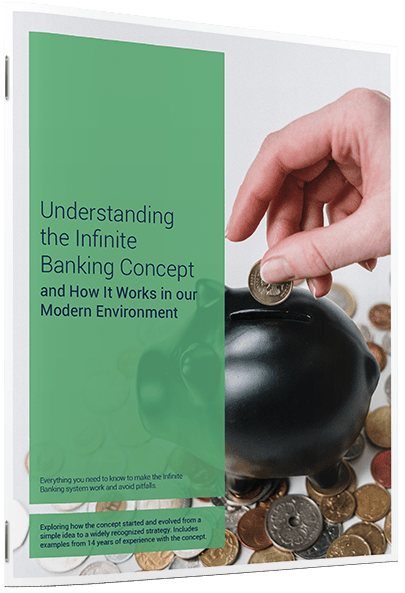702-660-7000
702-660-7000

The cash surrender value is money the insurance company will pay you if you voluntarily surrender (or end) your permanent life insurance policy. You can also think of cash surrender value as the present value of your paid-up insurance in whole life insurance and the accumulated cash value minus surrender charges in a universal life insurance product. The value of your cash surrender can be different from the total cash value in the policy in a universal life insurance policy, depending on the age of the policy and the cost of the surrender fees associated with universal life insurance.
Surrendering your life insurance policy means that you forfeit the death benefit, but you won’t have to pay any more premiums. This process is different from borrowing against your policy. Borrowing against your policy involves your cash value, but it keeps the policy and death benefit in place.
When you purchase a permanent life insurance policy, you gain the opportunity to accumulate cash value in most policies. In the case of whole life insurance, your premiums primarily fund the death benefit after paying a nominal annual fee to the insurance company, usually less than $100 per year. For universal life insurance products, your premiums first cover a fee charged by the insurance company. This fee, a percentage of your premium, increases with the premium amount. Once you pay this fee in universal life insurance, the company deducts the cost of insurance from your premium. The remaining amount, after fees and insurance costs, contributes to your accumulated cash value. With each premium payment, especially larger ones, you enhance your cash value. If you ever decide to surrender your policy, the insurance company will refund the cash value from either a whole life or universal policy, deducting any surrender fees from your accumulated cash values before paying out the remainder. The cash value you receive differs from amounts obtained through viatical settlements, life settlements, or the added value from an accelerated benefit rider.

Discover The Perpetual Wealth Code™, an easy system to maximize the control of your savings and minimize penalties so you can keep more of the money you make and build wealth every year WITHOUT riding the market roller-coaster. Download here>
Many people question whether the terms ‘cash value’ and ‘cash surrender value’ can be used interchangeably. These terms are essentially the same, except for one specific scenario. In most universal life insurance policies, a ‘surrender period’ exists, during which the insurance company charges surrender fees if you cancel your policy. These surrender periods typically last 10 to 15 years, though they can be shorter in policies issued earlier.
During the surrender period of a universal life insurance policy, if you decide to surrender your policy, the insurance company will subtract the surrender fees, as stipulated in the universal life insurance contract, from your cash value. These fees can be substantial, particularly if you surrender the policy in the initial years, but they gradually decrease over the contract’s surrender penalty period. It is in this context that the surrender value of a universal life insurance policy may not match the accumulated cash value. For whole life insurance contracts, however, the cash value and surrender value are identical from the outset. Only outstanding policy loans or interest due on a policy will diminish the cash value of a whole life insurance policy.
There are several factors that go into determining your cash surrender value. These are some of the most important factors that can help you calculate your value:

Understanding the Infinite Banking Concept and How It Works In Our Modern Environment 31-page eBook from McFie Insurance Order here>
Once you take fees, time of ownership, type of policy, and premiums into account, you’ll have a better idea of your potential surrender value. Essentially, if you know how much cash value you have, you can subtract any surrender fees or policy loan interest and balance, and that will be your surrender value.
Life insurance has preferred tax treatment when it comes to withdrawing money. This is called FIFO (first in first out). This means cash surrender value can be withdrawn tax-free up to the cost basis of the policy (amount of premiums paid into the policy), before having to start paying tax on the growth. For example, if you paid $20,000 into a whole life insurance policy, you could withdraw (surrender) $20,000 from your cash value tax-free because you’d have paid that much in premiums already.
People often surrender their life insurance policies for various reasons, such as needing funds for retirement or wishing to cease premium payments. When faced with such decisions, the question arises: is surrendering your policy beneficial in the long term?
The answer hinges on the type of life insurance policy you possess. With universal insurance, the design of the policy may result in minimal cash value accumulation over time, leading to substantial premiums for limited financial return. Conversely, maintaining a whole life insurance policy could prove advantageous in the long run, especially during retirement. Whole life insurance ensures a guaranteed cash value accumulation, providing a financial resource for retirement or other needs. A strategically crafted whole life insurance policy offers more benefits and options than simply surrendering it. It can serve as a source of passive income or be converted into an annuity, ensuring a steady income for life.
Even if premiums are costly or retirement is nearing, surrendering a policy isn’t the only option you have:
Ultimately, if you aren’t sure what the best solution is to your life insurance questions, we can help. Here at McFie Insurance, we provide free strategy sessions where we can help answer your financial questions and guide you through the process of using life insurance to your advantage, including cash surrender value questions. Schedule a strategy session today, and we’ll help you get started.
 Ben T. McFie
Ben T. McFie
There's a lot of confusion around finance; there's so much to know and it's frustrating when you don't know enough to make the best financial decisions. I like to bring clarity to financial matters so people can make good financial decisions that will help them live wealthier more fulfilling lives.